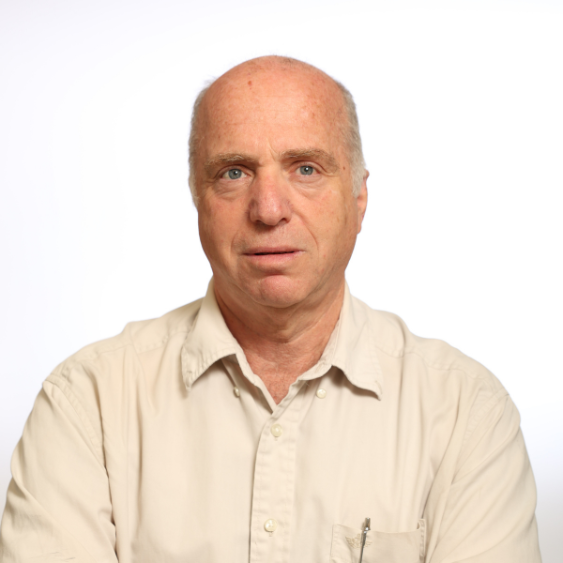ביולוגיה סינתטית
הביולוגיה הסינתטית משנה את הדרך בה אנו מבינים ומיישמים ביולוגיה, ומהווה את אחד התחומים המשפיעים ביותר על עתיד המדע והטכנולוגיה. היכולת לתכנת מערכות ביולוגיות מאפשרת פתרונות מתקדמים לבעיות עולמיות - ממזון בר-קיימא, דרך אנרגיה ירוקה ועד רפואה מותאמת אישית. הביולוגיה הסינתטית של צמחים ואצות מהווה מרכיב אסטרטגי בגיבוש פתרונות חדשניים לשיפור מערכות החקלאות והאנרגיה של העתיד
ביולוגיה סינתטית היא תחום מחקר חדשני ובין-תחומי, המשלב עקרונות של הנדסה, ביולוגיה מולקולרית, גנטיקה, וכימיה לשם עיצוב ובנייה של מערכות ביולוגיות חדשות או תכנות מחדש של מערכות טבעיות קיימות. המטרה: ליצור תאים, מסלולים מטבוליים, מולקולות ותהליכים ביולוגיים חדשים לצרכים יישומיים במדע, חקלאות, תעשייה ורפואה.
בבית הספר למדעי הצמח ואבטחת מזון מתקיים מחקר פורץ דרך המתמקד בביולוגיה סינתטית של צמחים ואצות, תוך שימוש בכלים מתקדמים של עריכה גנומית, שיטות לתכנות מערכות רגולציה ביולוגיות, ויצירה של מסלולים מטבוליים חדשים. החוקרים בונים מערכות המאפשרות שליטה מדויקת בזמן ובמקום על ביטוי גנים, מתכננים חיישנים ביולוגיים לגילוי ולתגובה לאותות סביבתיים, ומפתחים "תאים חכמים" שמייצרים חומרים ביולוגיים מבוקשים.
המחקרים עוסקים גם בייצור מולקולות מורכבות בצמחים ובאצות, כמו אנזימים ייחודיים, תרכובות רפואיות, חומרים נוגדי חמצון ודלקים ביולוגיים. בין היתר, מפותחות פלטפורמות לייצור בר-קיימא של תרופות, צבעים טבעיים וחומרי גלם לתעשייה, תוך שאיפה להפוך את הצמח והאצה ל"בתי חרושת ביולוגיים" יעילים, מדויקים וידידותיים לסביבה.
Synthetic biology is transforming the way we understand and apply biology, emerging as one of the most influential fields shaping the future of science and technology. The ability toprogram biological systems offers cutting-edge solutions to global challenges—from sustainable food and green energy to personalized medicine. Plant and algae synthetic biology plays a strategic role in developing innovative approaches to improve future agricultural and energy systems.
Synthetic biology is an innovative, interdisciplinary field that combines principles of engineering, molecular biology, genetics, and chemistry to design and construct new biological systems or reprogram existing natural ones. The goal: to create cells, metabolic pathways, molecules, and biological processes for practical applications in science, agriculture, industry, and medicine.
At the School of Plant Sciences and Food Security, groundbreaking research in plant and algal synthetic biology is unde rway. This includes the use of advanced genome editing tools, programming of biological regulatory systems, and the design of novel metabolic pathways. Researchers are building systems that enable precise spatial and temporal control of gene expression, designing biological sensors to detect and respond to environmental signals, and developing “smart cells” that produce valuable biological compounds.
The research also focuses on producing complex molecules in plants and algae, such as unique enzymes, medicinal compounds, antioxidants, and biofuels. Among the innovations are sustainable platforms for producing pharmaceuticals, natural pigments, and industrial raw materials—striving to turn plants and algae into efficient, precise, and environmentally friendly “biological factories.”
Our lab has two main research areas: 1. We focus on understanding the signal transduction pathway by which a fungal protein effector (MAMP) induces innate immunity in plants. We address this question from several angles: We use a genetic approach, gene editing (CRISPR) to isolate the plant gene controlling the plant response to the fungal protein. 2. We develop biosensors for agriculture where we use micro and nano-scale technologies in collaboration with electrical engineering. Our goal is to develop low-cost sensors that will be integrated into the plant (i.e. leaves, stem, rhizosphere, etc.) for early detection of various parameters that are of interest to the key factors in the food chain (i.e. farmers, wholesalers, transportation, government, and the food industry in general and the customers). To do that we use bio-convergence for direct sensing of plants’ health status, using the plants as sensors themselves. In our research, we integrate methods of synthetic biology, biotechnology, and electrochemical and electronic impedance spectroscopy (EIS).
Lab Website: https://adiavni.weebly.com/
We study how to store green energy as hydrogen gas. For that aim we study energy transfer in photosynthesis and use synthetic biology to engineer microalgae for the purposes of producing fuels such as hydrogen gas and valuable materials. We also combine nanotechnology as a framework to stabilize energy converting enzymes such as hydrogenase (hydrogen producers). In our research we use advanced chemical and physical methods to analyze the kinetics of gases in solutions, we apply mass spectrometry and gas chromatography. We also use super-fast spectroscopical methods including laser excitation to study natural and engineered photosynthetic microalgae. We perform anaerobic protein isolation and purification, membrane proteins research and construct and design of photobioreactors for scaling up hydrogen and biomass production.
Lab Website: www.energylabtau.com
Dr. Roy Weinstain
We are a dynamic, interdisciplinary, medium-size lab (4-6 students, typically) working at the interface of chemistry and biology. We work on the development of chemical biology methods to study and control biological processes in living plants. Our main interest is in small signalling molecules, such as plant hormones, that function as deliverers of information throughout the plant. We develop tools and methods to study not only the functions of such molecules, but also the regulatory mechanisms that govern them. We specialize in combining synthetic organic chemistry with molecular biology and genetics of plants. Our multi-disciplinary capabilities enable us to interrogate the functions of endogenous and synthetic small molecules in plants in a comprehensive manner.
Lab Website: https://roywlab.wixsite.com/rwlab
Dr. Yosef Fichman
Plants respond to changes in their environment to survive and grow. When one part of a plant is stressed, the whole plant responds within minutes. This is called systemic acclimation, a process by which plants adjust their metabolism, physiology, and biochemistry to adapt to changes in their growth conditions or environment.
Our research focuses on the molecular mechanisms on of systemic acclimation to light and other abiotic stresses. We study how signals such as reactive oxygen species, calcium, and membrane depolarization spread rapidly within cells and from cell to cell. We also investigate how these signals affect amino acid metabolism, which plays a role in acclimation.
To answer these questions, we use a variety of methods, including molecular biology, genetic screens, imaging, physiological assays, and omics.
Dr. Lior Tal
My lab aims to reveal how plants utilize protein breakdown to adjust molecular signaling cascades and facilitate growth responses to abiotic changes. We specialize in protein-protein interactions, employ CRISPR/Cas9 for genome editing, and baculovirus-based systems for expressing and purifying plant proteins.
Lab Website: https://tallior.wixsite.com/tal-lab





